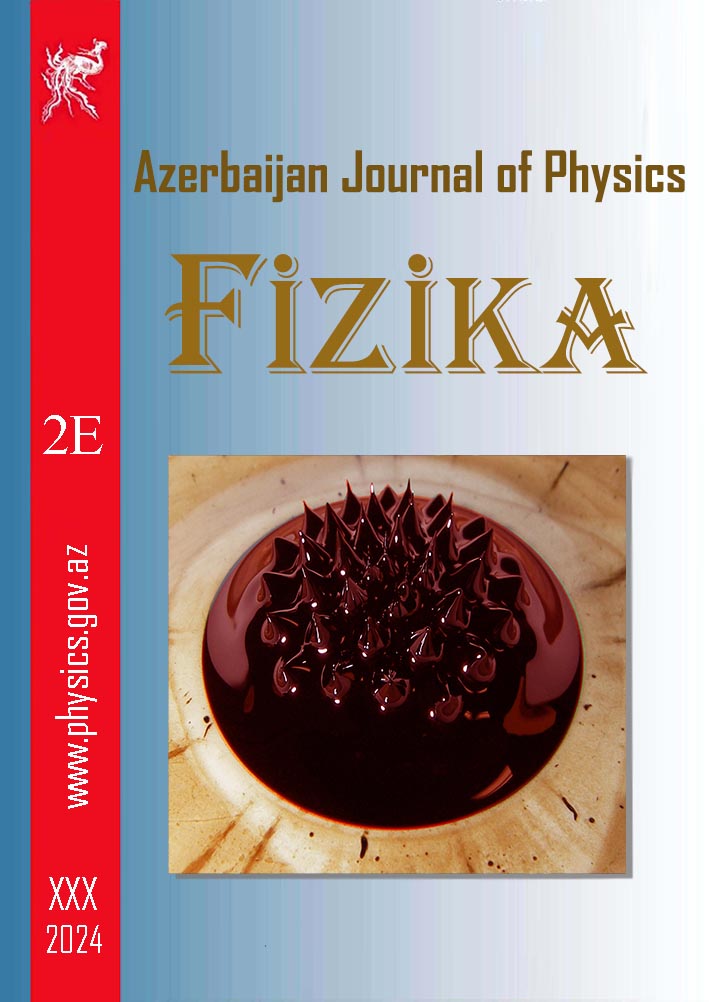ABSTRACT
The electrical conductivity of the TlInS2 <5% C> compound exposed to 150 keV protons was studied in a constant electric field; its ion and electron shares, relaxation
time τ, and diffusion coefficient D were determined. After being exposed to protons, it was demonstrated that the electron share and relaxation time decreased while the
diffusion coefficient values and the ion share of the conductivity increased. The analysis of complex impedance spectra reveals that the low-frequency region of the
hodograph corresponds to the inclined straight line characterizing the polarization of volume charges in the near-electrode region, and when exposed to protons, the
hodographs shift to the high-frequency region. It was also shown that the depth distribution of vacancies formed by the effect of H+ ions and vacancies created by recoil
atoms in the TlInS2 (5% C) compound reaches a maximum at a depth of 980 nm and diminishes with increasing depth, and after a depth of 1500 nm, the effect of protons with
an energy of 150 keV disappears.
Keywords: radiation with protons, godograph, complex impedance spectra, relaxation time, diffusion coefficient, ionic share of electrical conductivity, vacancy.
DOI:10.70784/azip.2.2024214
Received: 30.04.2024
Internet publishing: 27.06.2024
AUTHORS & AFFILIATIONS
1. Ministry of Science and Education of the Republic of Azerbaijan, Institute of Radiation Problems
2. Institute of Physics named after H.M.Abdullayev of the Ministry of Science and Education Republic of Azerbaijan AZ-1143, Baku, 131. H.Javid ave.
3. Ministry of Science and Education of the Republic of Azerbaijan, Azerbaijan State Oil and Industry University
E-mail: oktaysamedov9@gmail.com
Graphics and Images
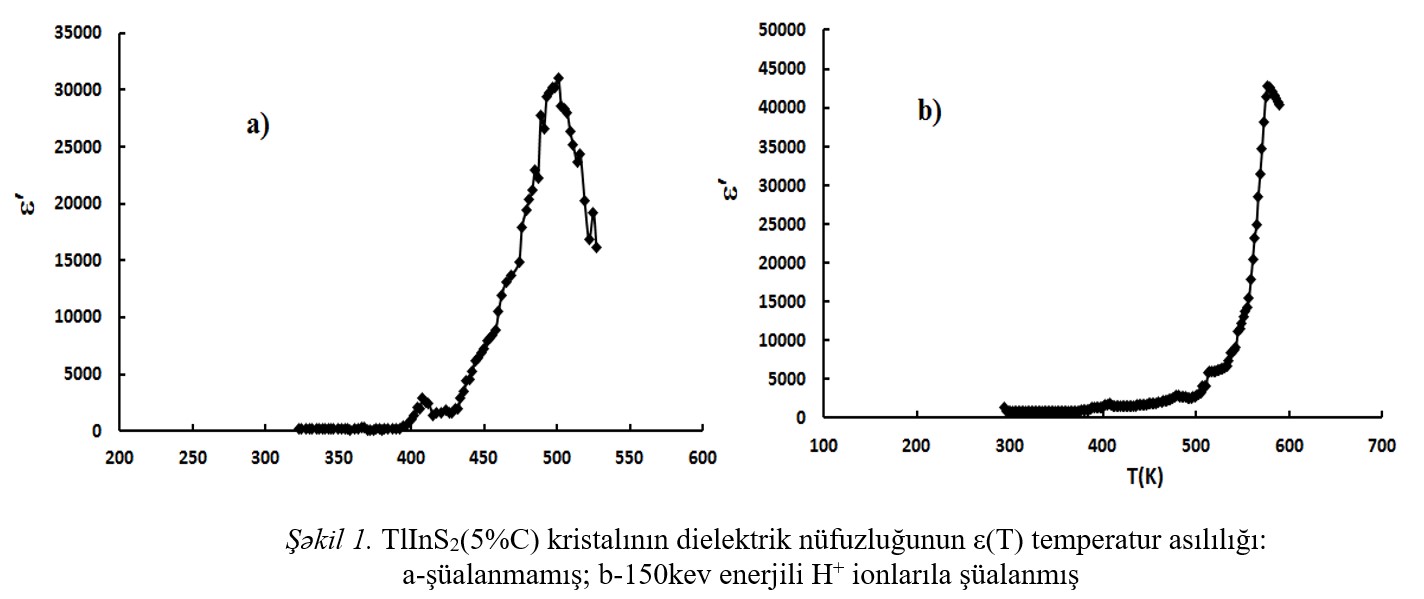
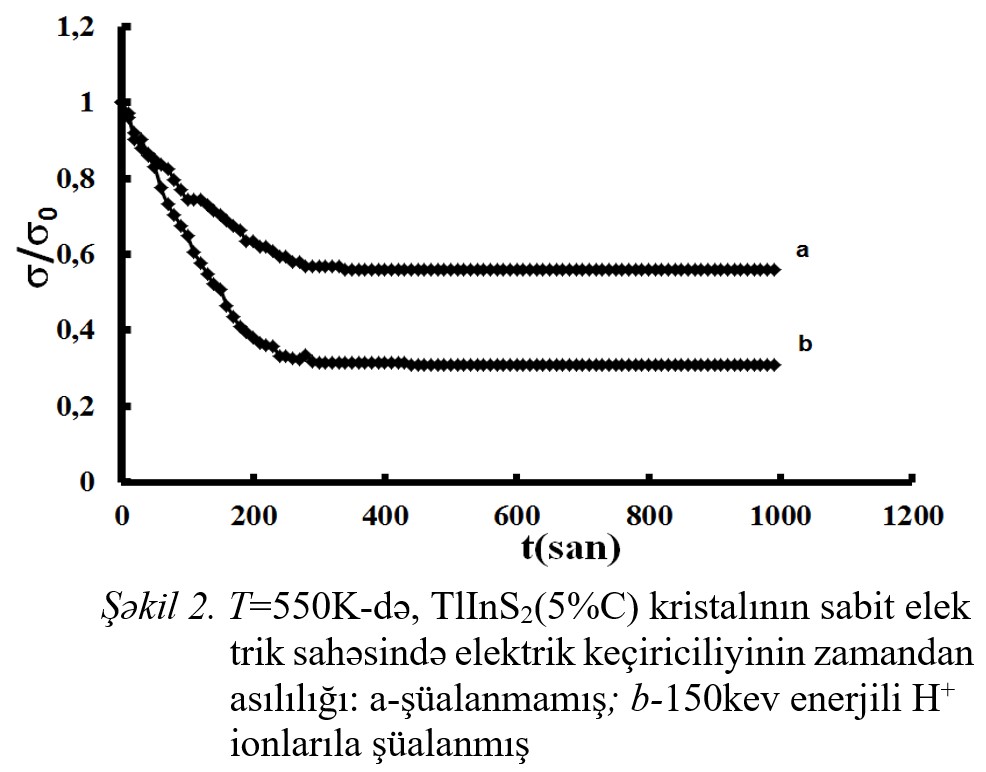
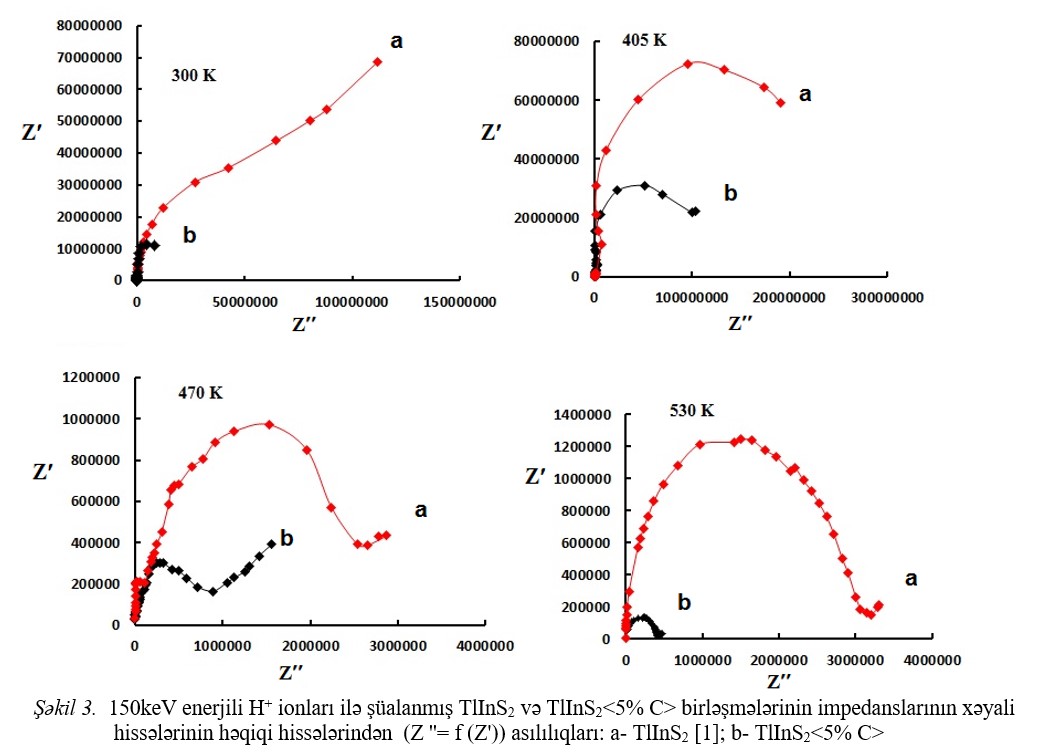
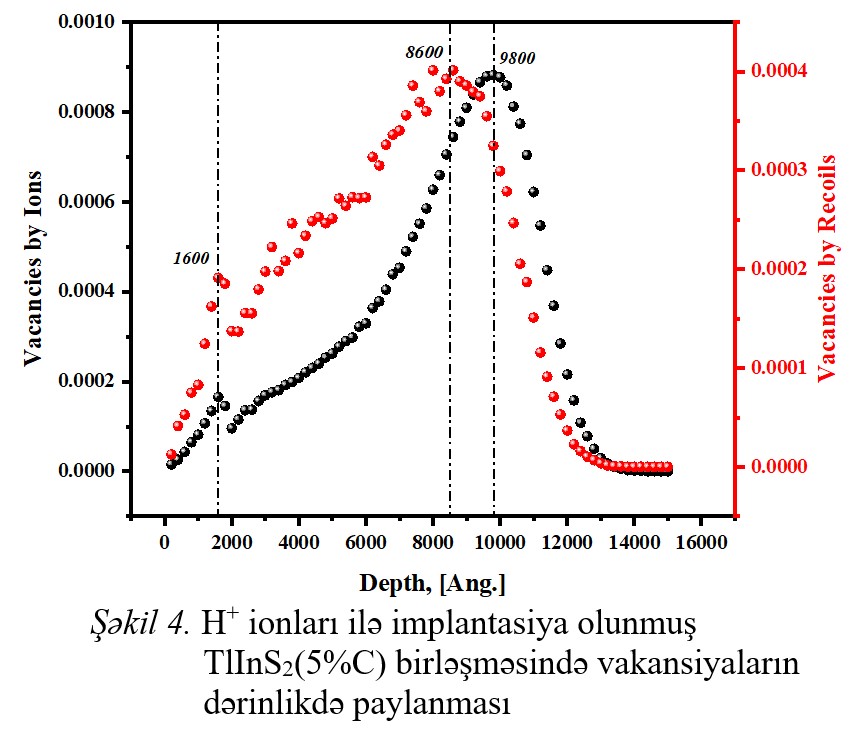
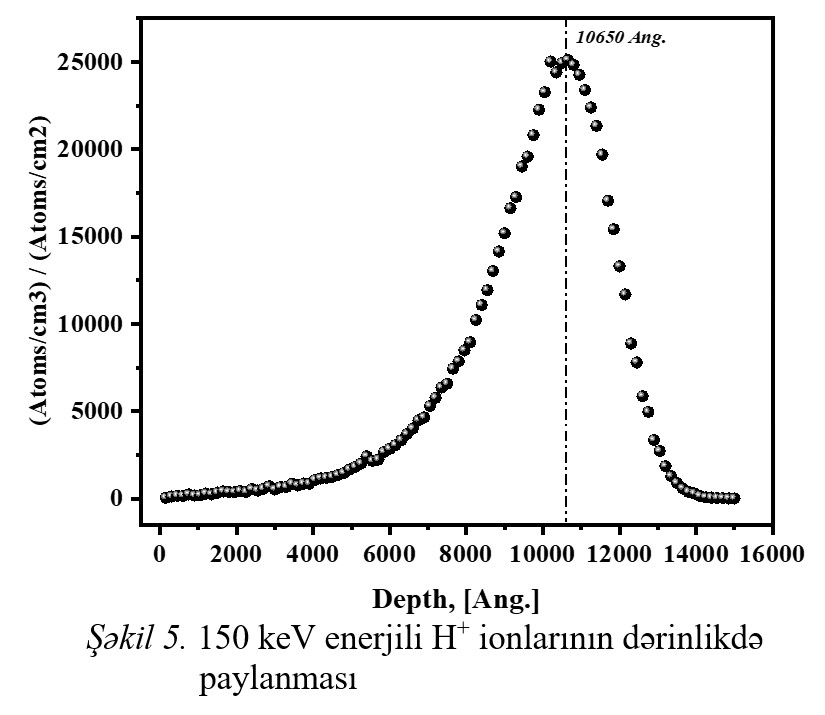
Fig.1 Fig.2 Fig.3 Fig.4 Fig.5
|
[1] S.F. Samadov, O.A. Samedov, O.Z. Alekperov, M. Kulik, A.L. Najafov, N.M. Mehdiyev, E.M.Huseynov. Dielectric and electrical propertiesofnear-surface layers of TlInS2 crystals under the proton irradiation. International Journal of Modern Physics B, 2019, Vol. 33, № 27, 1950320.
[2] M. Кулик, С.Ф. Самедов, О.А.Самедов, О.З.Алекперов, Д. Колодынска, A.Олеинчак, Н.М. Мехтиев. Исследование оптических и электрических свойств кристалла TlInS2 после имплантации ионами водорода и гелия. Journal of Radiation Researches, Baku, 2018, vol.5, № 2, с. 62-66
[3] O.Ə. Səmədov, X.B. Orucova, A.İ. Nəcəfov, N.M. Mehdiyev, V.Ə. Qasımov, R.N. Mehdiyeva, S.F. Səmədov, M.N. Mirzəyev, T.İ. Kərimova. Qamma şüalarının təsirinə məruz qalmış TlInS2 (5 at%C) kristalının dielektrik, elektrik xassələri və ion keçiriciliyi. Xəbərlər. 2024. (çapda)
[4] В.Н. Чeботин. Химическая диффузия в твердых телах. НАУКА. М., 1989, 200 с.
[5] А. Лидьярд. Ионная проводимость кристаллов, ИИЛ, М., 1992, 222с.
[6] Ионная проводимость и процессы объемно-зарядовой поляризации в кристаллах Li2Ge270215. ФТТ, 2012, том 54, вып. 3, 470-475.
[7] O.A. Samedov, O.Z. Alekperov, Kh.B. Orudjova, N.M. Mehtiyev, A.I. Nadjafov, I.A. Gabulov, E.M. Huseynov. Electrical impedance investigation of gamma-irradiated TlInS2 (5%C) crystals. International Journal of Modern Physics B 2021, v.35, № 1, p. 2150009.
[8] O.A .Samedov, O.Z Alekperov, Kh. B. Orujova, A.İ. Nadjafov, E.M. Huseynov, S.F Samedov, İ.A. Gabulov, N.M. Mekhtiyev. Dielectric permittivity and relaxation process investigation of C-doped TlInS2 crystals. Modern Physics Letters, B 2021, v.35, № 20, p. 2150325.
[9] J.F. Ziegler and J.P. Biersack. (Pergaman Press, New York, 1985), p. 375
[10] Sh.B. Utamuradova, Sh.Kh. Daliev, D.A. Rakhmanov, S.F. Samadov, A.S. Doroshkevich. Investigation of radiation defect formation of irradiated n-Si<Pt>. Advanced Physical Research. Vol.5, № 3, 2023, pp.183-191
|
